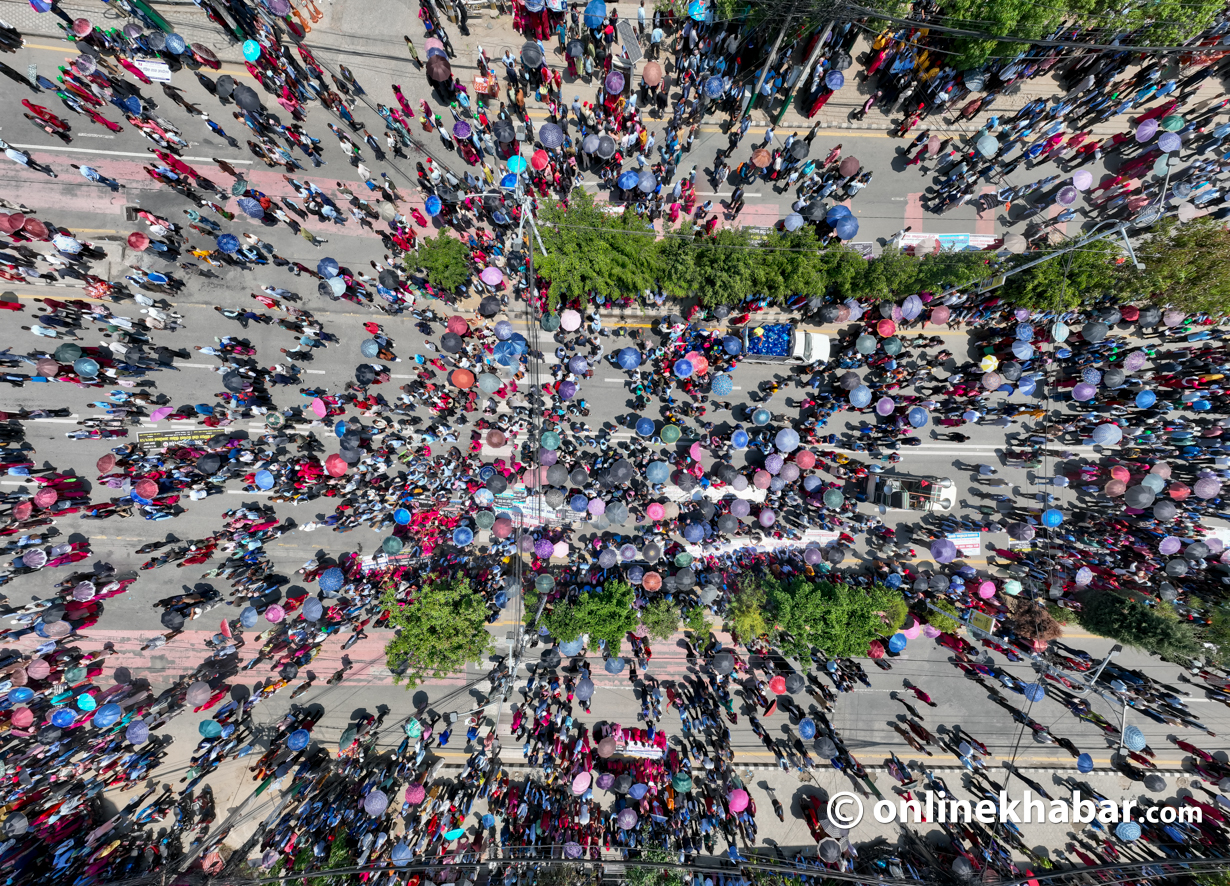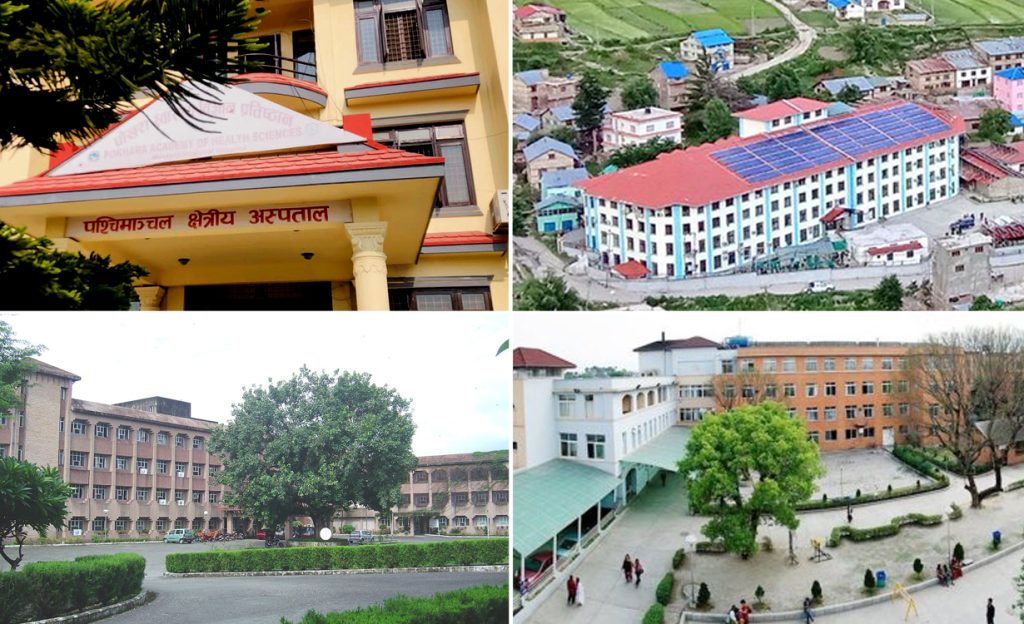Rasuwa, April 4
The Syafrubesi-Mailung sector in Rasuwa is a hive of activities these days. There, Nepali Army personnel and other workers are building the four-kilometre stretch, which is part of a route that will turn into an artery that will help increase trade between Nepal and China. What’s more, it will make way for implementation of a transit deal that Nepal inked with its northern neighbour recently.

The construction work that started 11 months ago has been going on war footing. Government started building this track after landslides jeopardised the old road along this sector.
Progress so far
Of the four-kilometre stretch for which it bagged the contract, the NA has already completed a 1.1-km double-lane stretch. It has also constructed a 1.2-km-long single-lane track in the meantime.
Major Sanjay KC, tasked with construction of the stretch, says the NA will construct the four-kilometre stretch within seven months. But the four-kilometre stretch is only a small section of the 16-kilometre-long project that will connect Nepali territories with Kerung, China. The government is preparing to assign the construction of the entire stretch to the army. For construction of the four-kilometre track, the NA will have to spend Rs 230 million.
The army is spending Rs 48 lakh for opening a one-kilometre-track along the rocky stretch. In two installments, the government has already released around 100 million rupees to it.
According to Major KC, around 200 people — 100 NA personnel and 100 civilian workers — have been working on the Syafrubesi-Mailung stretch, considered a vital lifeline connecting Nepal with the Chinese trade point of Kerung. The army has been using a host of equipment for the construction work, including two excavators.
Part of the stretch passes through the Langtang national park. For the army, this means there are certain restrictions on the use of explosives in the area.
We have been working in coordination with authorities concerned, says KC.
Before the blockade, construction work was going on at a fast pace. The fuel shortage resulting from the blockade delayed the construction work a bit.
Two years to go
The NA has been working currently on the four-kilometre Syafrubesi-Mailung portion out of the 16-km supply lifeline. Beyond Syafrubesi, the road is one-lane but there’s no need to worry, for the Chinese government itself has pledged to turn that stretch into a two-lane artery.
Nepal will have to build the remaining 12-kilometre stretch and turn the Mailung-Betravati-Galchi stretch into a two-lane track. The NA expects the task to complete in two years. If work continues at this pace, the army expects, Nepal and China can engage in trade and commerce within two years through this route.
Transit hopes
Nepal has recently signed a transit agreement with China. But many people think implementing the pact will not be easy, given the lack of a reliable road connecting the two countries.
Last year’s quakes shut the vital Tatopani customs. This shutdown has been affecting Nepal-China trade relations in a big way. This route can restore the bilateral trade ties. The land route connecting Kathmandu with Kerung is about 153 kilometres long. Worse still, Nepal’s road stretches are in bad shape. This project will make implementation of the transit deal possible.
Army on the road
The NA has so far constructed 28 roads, most of them during the decade-long insurgency. From 2013 till July 2015, the army spent about nine billion rupees on road construction. It built Besishahar-Chame, Beni-Jomsom, Chhinchu-Jajarkot and Jumla-Mugu roads, all located in remote areas, during the insurgency.

The army has equipment required to construct roads. This is why the army manages to complete road projects on time, says NA Spokesperson Tara Bahadur Karki. The army has human resources required for road construction. Besides this, the army always wants to live up to the expectations of the people and the government, he says.
About 70 NA personnel have lost their lives while constructing roads. According to Karki, each soldier and civilian worker engaged in road projects has life insurance cover of five lakh rupees.




















